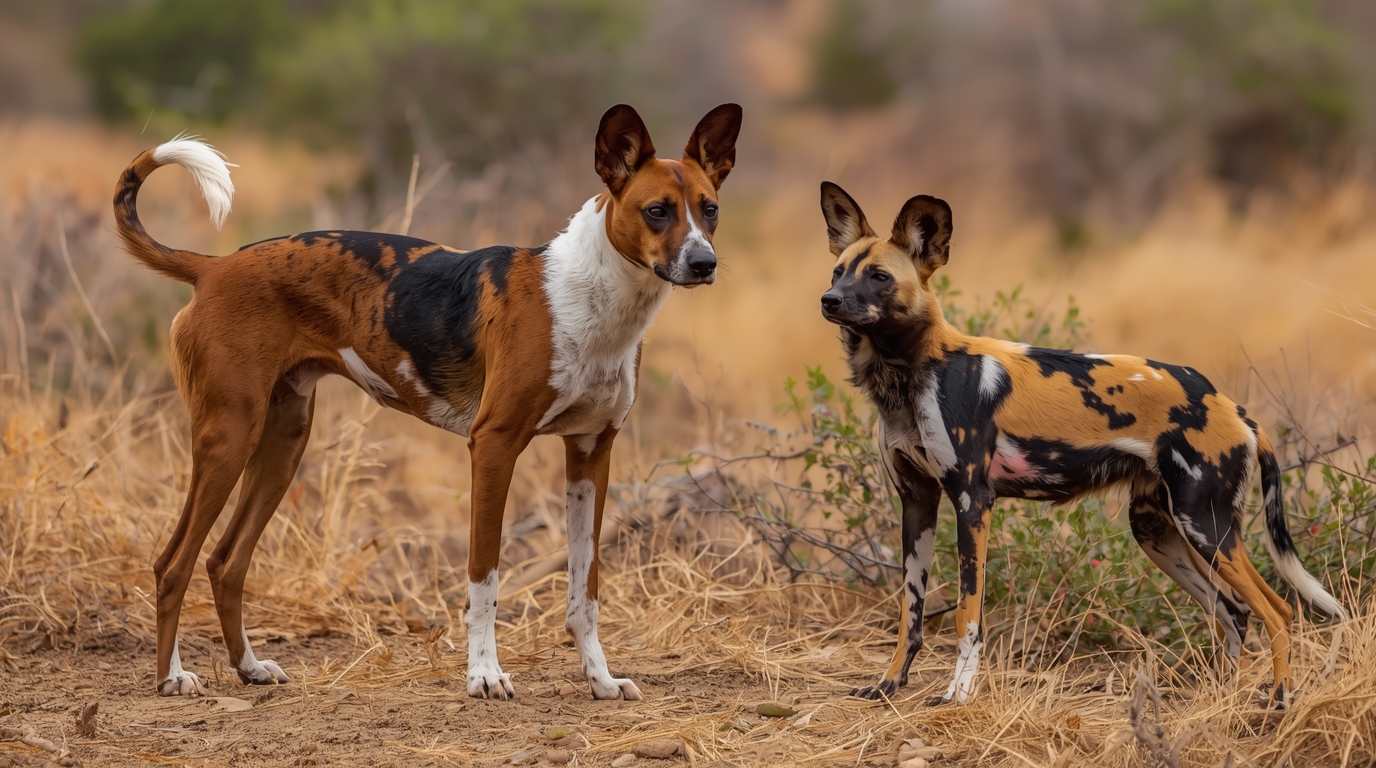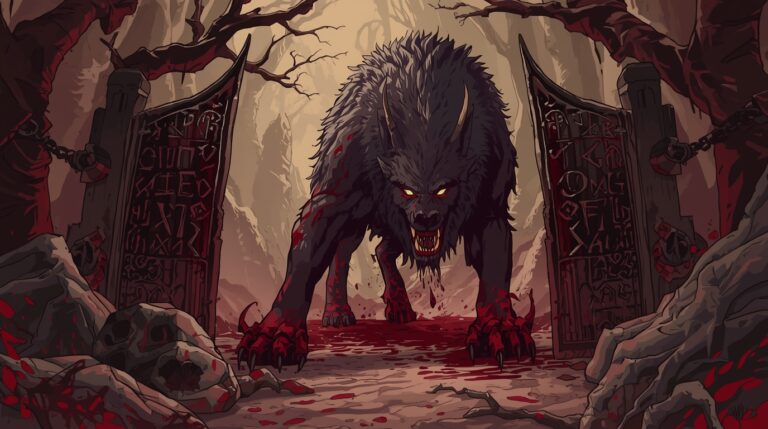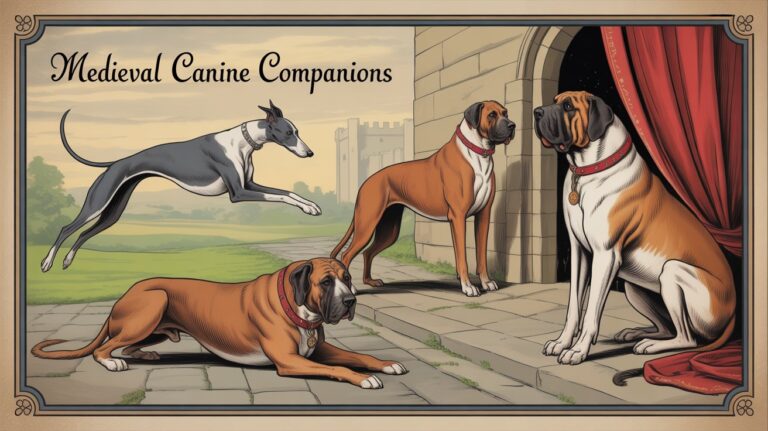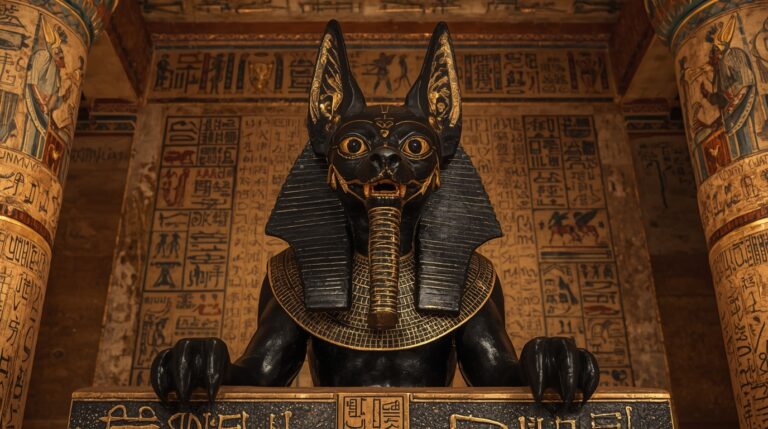Dogs in Africa (Basenji, African Wild Dog Myths)

Introduction to Dogs in Africa
Dogs in Africa represent an incredible diversity—from the domesticated Basenji to the endangered African Wild Dog. Their roles span from companions to mythical beings and guardians of the spirit world. Africa’s relationship with dogs predates written history, shaped by practical needs, spiritual beliefs, and environmental adaptation.
Historical Origins of Dogs in African Civilization
Dog remains dating back over 5,000 years have been found in Nile Valley tombs and Ethiopian archaeological sites, suggesting early domestication. African societies likely bred dogs for utility—hunting, guarding, and companionship—as well as for their spiritual presence.
Domestication of Dogs in the African Continent
Genetic studies indicate that Africa was one of the primary regions of dog domestication. Unlike European breeds selected for appearance, African dogs like the Basenji were bred for performance and adaptability. Dogs were part of daily life—helping track prey, guard herds, and ward off predators.
Overview of African Dog Breeds
Africa is home to multiple native breeds, each evolved for specific terrains and roles.
Basenji
Originating from Congo, this barkless dog is agile and independent.
African Wild Dog
A wild canid (not a domesticated dog) found in open plains and forests.
Azawakh
This slender sighthound from the Sahel is favored by Tuareg nomads.
Sloughi
Found in North Africa, Sloughis are desert-adapted hunting dogs.
Basenji: The Barkless Dog of the Congo
Physical Characteristics
Basenjis are small, elegant dogs weighing around 22 to 24 pounds, with curled tails, short coats, and expressive almond-shaped eyes. Their most unique trait is their lack of barking, replaced by a yodel-like sound known as a “baroo.”
Hunting Skills and Behavior
Traditionally used by Congo hunters, Basenjis help drive small game into nets. They are incredibly intelligent, independent, and low-odor, making them suitable for dense jungles.
Cultural Significance
Basenjis appear in ancient Egyptian hieroglyphs, suggesting their role in early North African societies. They are considered symbols of sharp intuition and cleanliness.
also read this Dog History by Region
African Wild Dog: Painted Hunter of the Savannah
Scientific Classification (Lycaon pictus)
Known scientifically as Lycaon pictus, the African Wild Dog is often called the Painted Dog due to its irregular patchwork of colors.
Endangered Status and Conservation
Once numbering over 500,000, fewer than 7,000 African Wild Dogs exist today. Habitat fragmentation, disease, and hunting contribute to their decline. The IUCN lists them as Endangered, with strong conservation efforts in Botswana, Zimbabwe, and Tanzania.
Pack Dynamics and Hunting Tactics
Wild Dogs operate in highly cooperative packs of up to 20 members, showcasing an 80% hunting success rate, the highest among African predators. They use high-speed chases and strategic pack movement to exhaust prey.
Basenji vs African Wild Dog: Key Differences
| Feature | Basenji | African Wild Dog |
| Domestication | Domesticated | Wild species |
| Origin | Congo | Sub-Saharan Africa |
| Sound | Yodels, doesn’t bark | Makes chirping, whines |
| Size | Small (~22 lbs) | Medium (~50–70 lbs) |
| Social Structure | Independent | Pack-based |
| Endangered? | No | Yes |
Dog Symbolism in Ancient African Cultures
Dogs in Ancient Egypt (Anubis, Guardianship)
The Egyptian god Anubis, guardian of the underworld, is depicted with a jackal or dog head. Dogs were mummified alongside humans to accompany them in the afterlife.
Dogs in Nubian Burial Practices
The Nubians of modern-day Sudan buried dogs in separate tombs, suggesting reverence and possible religious symbolism.
Myths and Legends Featuring Dogs
Zulu Mythology
Zulu legends describe dogs as messengers between gods and humans. One tale recounts a dog failing to deliver immortality to humans due to laziness, explaining human mortality.
Yoruba Dog Spirits
In Yoruba mythology, dogs are associated with the Orisha Ogun, god of iron and war. Dogs were sacrificed to Ogun in ceremonies.
Maasai Warriors and Their Canines
The Maasai of Kenya and Tanzania believe dogs ward off evil spirits and protect against lion attacks.
Spiritual Significance of Dogs in African Traditions
Dogs serve as spiritual guides, protectors, and omens across various African belief systems. Many cultures believe dogs have the ability to see spirits or demons, making them sacred.
The Role of Dogs in African Tribal Societies
San People and Hunting Companions
The San (Bushmen) of southern Africa used dogs to assist in tracking and cornering game.
Tuareg and Dog Nomadism
Tuareg nomads in the Sahara favor the Azawakh, a dog bred for speed and loyalty. These dogs guard camps and accompany herders.
Dog-related Folktales in African Literature
Dog Trickster Tales
African folk stories often depict dogs as clever, sometimes mischievous animals—stealing food, tricking other animals, or escaping death.
Shape-shifting Dog Spirits
Certain cultures like the Igbo believe in “were-dogs”—dogs that can turn into humans or vice versa during full moons.
Dogs in African Art and Music
From dog-shaped masks in West Africa to rhythms mimicking dog movement in tribal drumming, dogs permeate cultural expression.
Dog Ceremonies and Rituals in African Tribes
Some tribes hold dog funerals, complete with chants and offerings. Others use dog totems in rites of passage or coming-of-age ceremonies.
Dog Tracks in African Rock Paintings and Petroglyphs
Rock art from Tassili n’Ajjer in Algeria and Drakensberg in South Africa shows dog-like figures, suggesting their role as early hunters’ companions.
Current Conservation Efforts for African Wild Dogs
IUCN Involvement
The International Union for Conservation of Nature (IUCN) tracks population metrics and provides funding for anti-poaching patrols.
WWF African Initiatives
World Wildlife Fund (WWF) runs tracking collar programs, public awareness campaigns, and habitat protection zones in Africa.
Dogs in African Urban vs Rural Societies
In rural Africa, dogs are mostly working animals. In cities like Nairobi or Lagos, there’s a rising trend of dog adoption for companionship and security.
Ethical Dilemmas and Dog Abuse in Africa
Stray dog overpopulation, rabies, and dog meat trade remain challenges in parts of Africa. NGOs like SPCA Africa are working to improve animal welfare laws.
Cultural Evolution: Modern African Views on Dogs
While once seen as mere tools, dogs are now becoming part of the nuclear family in many African homes. Pet shops, vets, and dog shows are on the rise.
African Dogs in Global Popular Culture
Basenjis are featured in shows like “Good Boy!” and “The Incredible Journey”, while documentaries such as BBC’s “The Hunt” highlight African Wild Dogs.
Challenges Facing Native African Breeds
Crossbreeding, climate change, and loss of tribal knowledge threaten breeds like the Azawakh and Sloughi.
How to Support African Dog Conservation
- Donate to Painted Dog Conservation or African Wildlife Foundation
- Support local African breeders preserving indigenous lines
- Raise awareness through education and content sharing
FAQs about African Dogs
- Are Basenjis good family dogs? Yes, but they require patience and mental stimulation.
- Can African Wild Dogs be tamed? No. They are wild species with unique needs.
- Which African dog breed is best for hot climates? The Azawakh thrives in desert temperatures.
Conclusion: Africa’s Diverse and Deep Canine Legacy
From ancient tombs to modern conservation zones, African dogs are deeply woven into the continent’s cultural and ecological fabric. Whether it’s the loyal Basenji, the elusive African Wild Dog, or the spiritual canine of tribal lore, Africa’s dogs symbolize resilience, mystery, and tradition.





